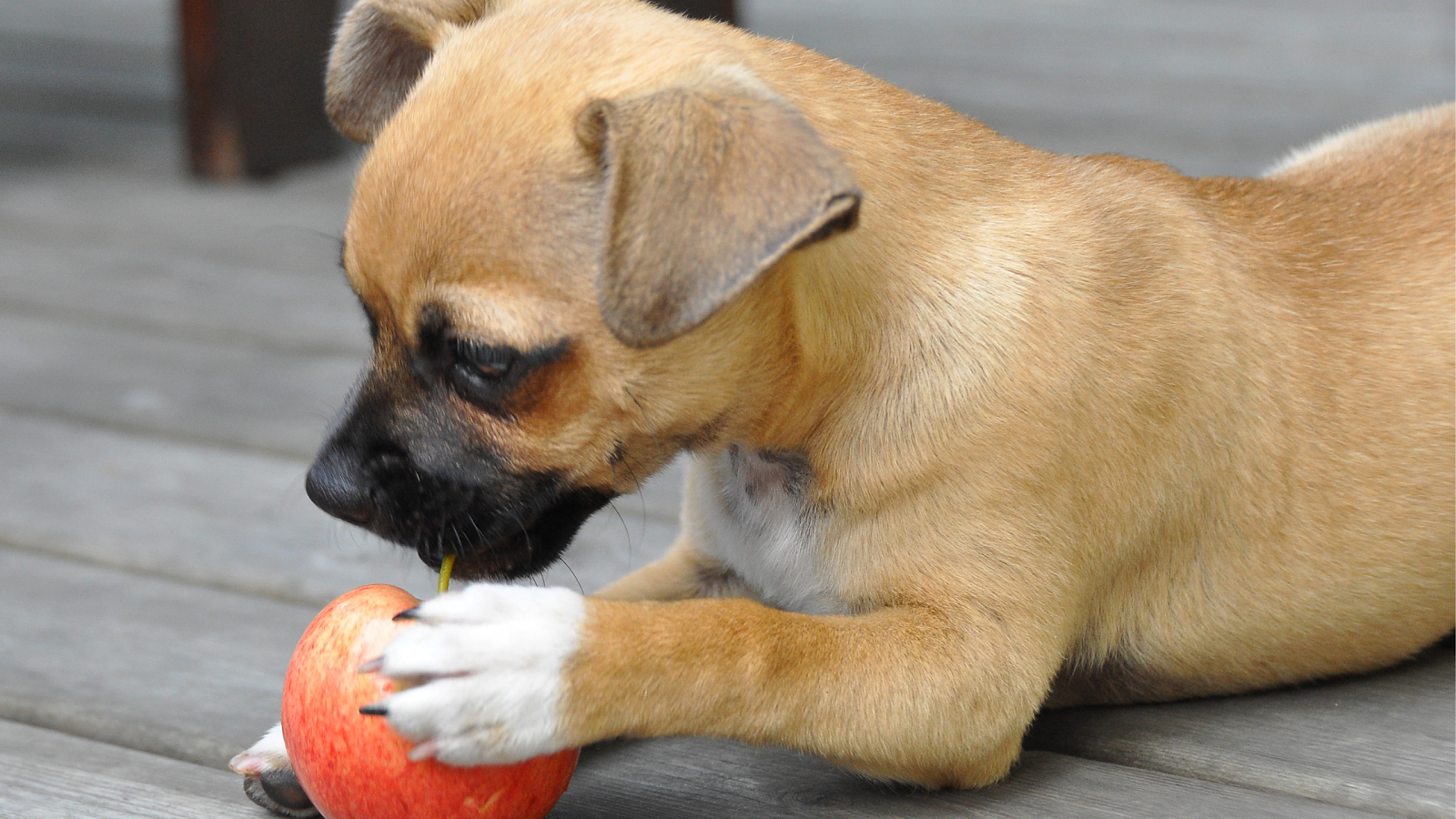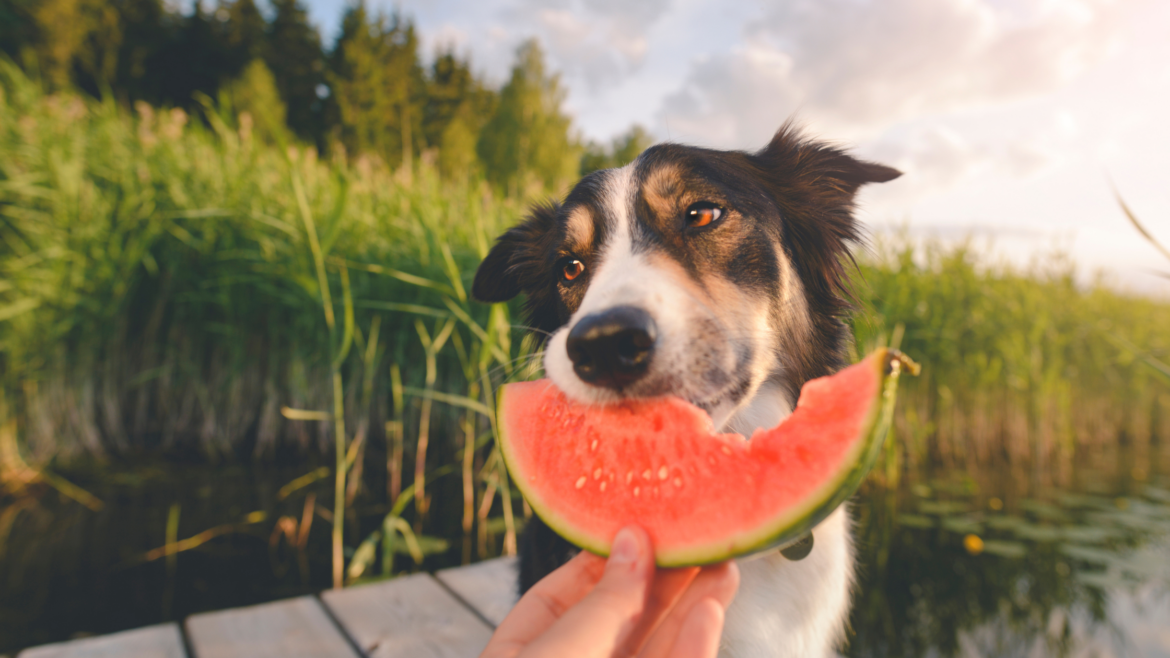Hey pet parents, Dr. Matt from ModernVet here! With temperatures heating up in North Atlanta, it’s the perfect time to talk about some delicious, refreshing treats your pup will love. Fruits can be a fantastic addition to your dog’s diet, especially during these warmer Georgia months. Many safe fruits dogs can eat can even be frozen to create tasty enrichment treats, keeping your canine companion happy, hydrated, and entertained on those hot summer days.
At ModernVet, we’re committed to helping you keep your pup healthy and safe. In this guide, I’ll walk you through exactly which fruits dogs can eat safely, the fruits you should avoid, and the best ways to incorporate these nutritious snacks into your dog’s diet.
Can Dogs Eat Fruit?
Absolutely! Incorporating fruit into your dog’s diet can offer a number of health benefits, as long as you choose the right options and offer them sparingly so they don’t get too much sugar.
Including safe fruits in your pet’s diet can:
- Enhance your dog’s immune system with vitamin C and antioxidants.
- Promote digestive health with natural fiber.
- Provide a low-calorie, nutritious alternative to processed dog treats.
- Help keep your dog hydrated, especially during the warm North Atlanta summers.
Before adding fruits to your dog’s meals, let’s dive into which fruits are safe.
Fruits Dogs Can Eat Safely


Giving your dog fruit can be a fun way to offer them a tasty treat. Here’s my go-to list of safe fruits for dogs that won’t upset your dog’s stomach.
- Apples: Apples are fantastic fruits dogs can eat safely. They’re high in fiber, vitamin C, and antioxidants, boosting your dog’s immune health. Always remove the seeds and core to avoid a choking hazard.
- Blueberries: Packed with antioxidants, blueberries help support your dog’s immune system and healthy digestion. They make excellent bite-size snacks or frozen treats!
- Bananas: Bananas are a nutritious treat that many dogs enjoy. Rich in potassium and fiber, bananas support digestive health, but feed in moderation due to natural sugars.
- Watermelon: Refreshing and hydrating, watermelon is perfect for hot Georgia summers. Always remove seeds and rind to prevent an upset stomach.
- Strawberries: Strawberries offer anti-inflammatory properties and vitamin C. Bonus: They can help naturally whiten your dog’s teeth!
- Mangoes: This delicious tropical fruit is packed with nutrients. Just make sure to remove the pit, as it poses a choking risk.
- Pears: Pears provide fiber and vitamins that support digestive health. Always remove seeds and cores, as pear seeds contain traces of cyanide, a toxic substance for dogs.
- Pineapples: Fresh pineapple chunks contain beneficial enzymes and vitamins. Avoid canned varieties due to excess sugar.
- Cantaloupe: Low-calorie and nutrient-rich, cantaloupe is ideal for overweight dogs looking for a sweet snack.
- Raspberries: Frozen raspberries offer fiber and antioxidants but should be fed sparingly due to their natural sugar content.
Fruits That Are Toxic to Dogs—Avoid These!


Some common fruits are dangerous for dogs, potentially causing serious health issues such as kidney failure or severe digestive distress.
- Grapes & Raisins: Grapes and raisins are highly toxic, causing sudden kidney failure even in small amounts. If your dog consumes these, contact ModernVet’s urgent care services immediately.
- Avocados: Avocados contain persin, a substance potentially harmful to dogs. Avoid feeding avocado fruit to prevent stomach upset or worse.
- Cherries: Cherry pits contain cyanide, dangerous to your dog’s red blood cells and presenting a serious choking risk.
- Tomatoes: Tomato plants and green tomatoes contain solanine, a toxic substance causing gastrointestinal issues. Keep these away from your pup.
- Citrus Fruits: Citrus fruits, due to high acidity, can cause stomach pain or digestive upset, especially when consumed excessively.
How to Safely Feed Fruits to Your Dog
To safely incorporate fruits into your dog’s diet, follow these guidelines:
- Gradually Introduce Fruits: Slowly introduce new fruits to monitor for allergies or digestive reactions, avoiding unnecessary stomach upset.
- Proper Preparation: Always wash fruits thoroughly, remove all seeds, pits, and peels, and cut them into small, manageable, bite-sized chunks.
- Moderation is Essential: Even safe fruits should be given in moderation. Fruits and vegetables should account for less than 10% of your dog’s daily calorie intake.
- Avoid Canned Fruits: Canned peaches or canned pears typically contain added sugars. Opt for fresh or frozen fruits for a healthier snack.
Signs Your Dog May Have Food Poisoning
Even with the best precautions, accidents happen. If your dog eats a toxic fruit or has a bad reaction, you may notice these warning signs:
- Vomiting or diarrhea
- Excessive drooling
- Lethargy or weakness
- Increased thirst or urination
If you notice these signs, don’t wait—contact ModernVet’s urgent care services immediately.
When to Consult Your Vet
If you’re unsure about a fruit’s safety or your dog experiences adverse reactions after consuming fruits, consult us right away. ModernVet provides comprehensive veterinary care for pet owners in Johns Creek, Alpharetta, Suwanee, Duluth, and Cumming, including routine wellness exams, personalized nutrition counseling, and urgent care.
Healthy Fruit Treats to Feed Your Dog
Try these fun, vet-approved fruit snacks to boost your dog’s diet and keep them hydrated:
- Frozen Fruit Bites: Freeze blueberries, bananas, or watermelon cubes for summer treats.
- Fruit & Yogurt Blend: Combine strawberries or raspberries with plain yogurt and freeze in molds.
- Homemade Fruit Treats: Bake dog-friendly cookies using fruits dogs can eat, like applesauce or mashed bananas.
Keep Your Dog Safe & Healthy with ModernVet
Feeding your canine friend safe, nutritious fruits as occasional treats boosts their overall health and happiness. Understanding fruits dogs can eat safely allows you to offer variety without risking your dog’s digestive or immune health.
At ModernVet, we’re your trusted veterinary partner, dedicated to helping pet families across North Atlanta, from Johns Creek to Cumming, provide their dogs with a balanced diet, regular wellness exams, and prompt medical attention when needed.
Interested in personalized dietary advice or veterinary care for your pup? Contact our friendly team at Johns Creek animal hospital—we’re here to ensure your dog lives a happy, healthy life.




